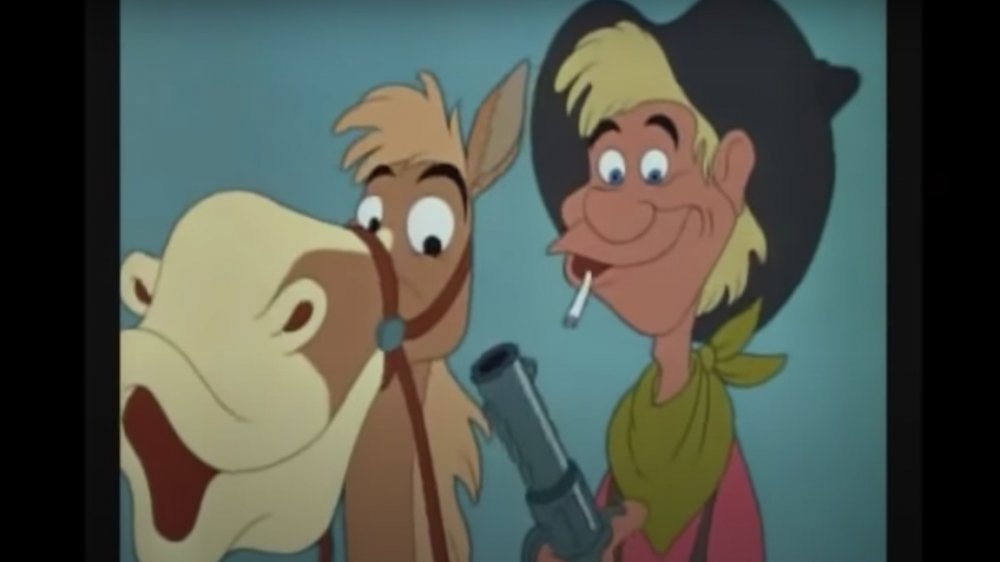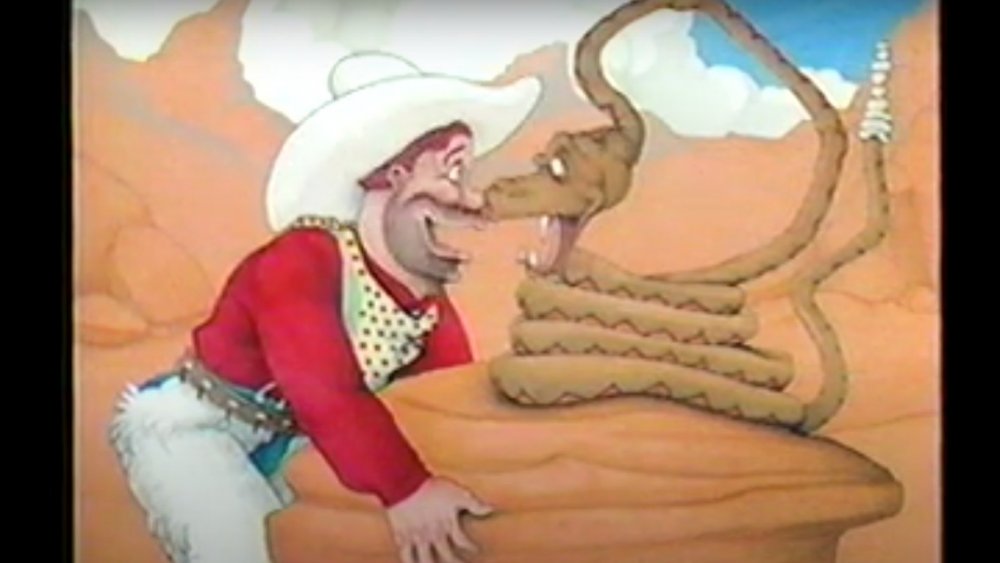The Legend Of Pecos Bill Explained
When did the Wild Frontier really end? Was it with the invention and utilization of barbed wire? That was as far back as 1873, says a review of The Perfect Fence in True West Magazine. No doubt that started the death knell for the open range. Was it maybe with the last U.S. stagecoach robbery? That was December 5, 1916, outside Jarbridge, Nevada, also according to True West Magazine. (The gold was never found. So if you've got some time on your hands....) And if that's the case, then Pecos Bill rode onto the scene just as things were closing up shop, as legends sometimes do. A legend is going to include elements of entertainment, and possibility, and probability, and take advantage of the listener's (to be charitable) gullibility. Davy Crockett specialized in it during his speeches on the campaign trail; Wild Bill Hickok would gull big-city reporters with improbable tales of his own derring-do, and when asked how he survived an impossible situation, would smile and say, "I didn't. I died."
Oral tradition is exactly that, often not written down until someone like the Grimm Brothers takes an interest and starts collecting and writing down the tales that have been told and expanded and contracted for generations. That's not the case with Pecos Bill, who, as Encyclopedia Britannica tells us, emerged from the typewriter of a former soldier of fortune named Edward O'Reilly.
The legend of Pecos Bill arose from a magazine, not a campfire
Those western-themed scribblings were initially published in The Century Magazine starting in 1917, later collected and published as a book, The Saga of Pecos Bill, says The Curious Historian. O'Reilly claimed that he had heard the stories around the campfires of working cowboys in the Southwest over the years. Gather 'round, buckaroos:
Bill's feats start with his infancy — he used a Bowie knife as a teether, and fell out of his family's wagon as they crossed the Pecos River, says Legends of America. He was swept away by the current, and saved and raised by coyotes. When his brothers found him again and convinced him that he was, indeed, a human, Bill became the roughest, toughest, often funniest Texas cowpoke ever — lassoing a herd of cattle with one loop of the rope, digging the Rio Grande, and more.
Several people doubted O'Reilly's claims about Bill's folkloric roots. Chief among them was Richard Dorson, who called O'Reilly's work "fakelore" — Dorson even wrote the book on the subject, Folklore and Fakelore: Essays Toward a Discipline of Folk Studies. Pecos Bill was nothing more than the creation of a single writer, trying to add a veneer of plausibility to his stories. (O'Reilly himself was the subject of a biography by journalist Lowell Thomas, titled Born to Raise Hell, according to the subject's 1946 obituary in The Morning News of Wilmington, Delaware.) Does all of that make Pecos Bill less authentic? Perhaps. Less valuable? That depends on the listener.

